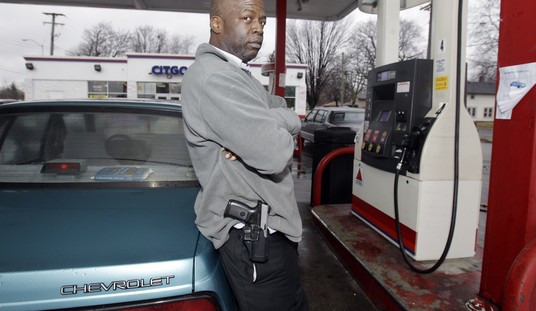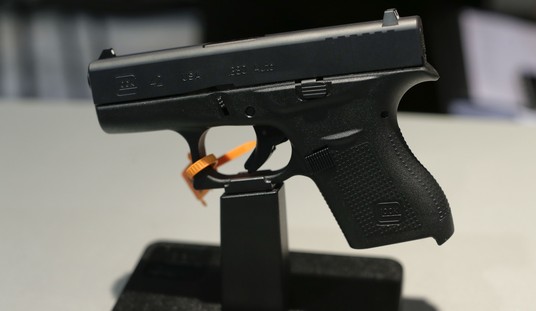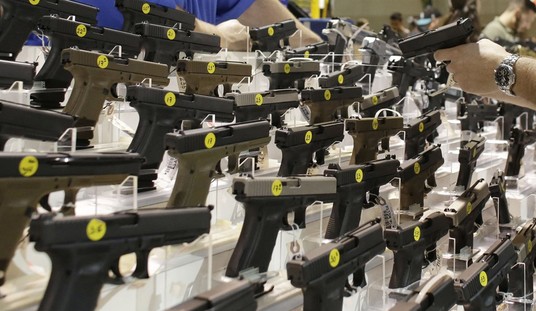The former Navy SEAL, who roomed with “American Sniper” Chris Kyle spoke to Human Events about his friend, who was gunned down Feb. 2 in Glen Rose, Texas.
It is OK to joke and have a good time after losing a shipmate like Kyle, said Benjamin Smith, who met Kyle during their six-month Basic Underwater Demolition/SEAL training held at the Naval Special Warfare Training Center in Coronado, Calif.
“Mourn for me, mourn for my family and what they are going through,” Smith said.
“Then, bring that beer truck, or whatever vice you need, and celebrate my life. If I am crying, then you should be crying, but other than that, you celebrate my memory,” he said.

The former SEAL, who left the Navy to become a private security consultant and trainer, said he has not had a chance to mourn properly since his friend’s murder. Instead, he has been preoccupied with reaching out to his own contacts in the special operations and law enforcement communities, trying to learn more about what happened. “I have not taken a moment off trying to find out about this mutt, who killed him.”
Kyle, whose “American Sniper” chronicles his experiences in the SEALs and his four combat tours in Iraq, where he racked up more than 150 confirmed kills, was in the BUD/S class ahead of Smith, but the future sniper was hurt during the “Hell Week.”
After he healed up, he joined Smith rotation.
“I remember seeing him around Hell Week and before Hell Week, he was one of the guys from the class of ahead of you, they feed you, they bring the instructors things stuff to make you hurt,” he said.“Hell Week” comes in the third or fourth week of the first phase of the training and it is a cruel week of physical and mental challenges designed to weed out trainees.
“During Hell Week, every half-day, you had to change your shoes, change your socks and put dry clothes on or new clothes on even if you have to pull it out of wet pail,” he said.
Part of the routine was to check on people’s feet, he said.
“While you are changing your socks, they would slather your feet with this salve, and to me that was the best moment of the day,” he said.
“He came over and slathered my feet with this stuff, and I was like: ‘Oh, my gawd, that is so kind, man, that is the nicest thing that has ever happened to me in my life’ I was in the miserable moment,” he said. “He put this slimy stuff on my feet and thinking about it I can still feel it.”
There was something different about Kyle’s approach, he said. Without saying it directly, Kyle spoke in a tone and expression that said: “Kid, you’re going to make it—that was my first meeting Chris Kyle.”
Smith and Kyle were both young men, not yet on their journey, but there was more to it than Kyle doing his duty. “I did not understand my own father until later in life, and I didn’t know it then, but now I know that Chris reminded me of my father.”
When Kyle resumed training, he was paired up with Smith, he said.
As roommates, Kyle was the neat one and Smith was the one getting them in trouble for a messy room, he said. “Chris was always on my ass about messiness.”
Another problem was Smith’s feet. They gave off a horrendous smell that would fill the tent with fumes.
To knock down the odor, Smith said he would wash his feet with a natural detergent called “Simple Green,” the same solution the SEALs used to clean carbon from their weapons.
“His nickname for me after that was: ‘Hey, Simple Green,’” he said.

Surrounded by extraordinary men, Kyle always stood out, he said.
“That guy, that guy, he was a real American cowboy, he was the Reagan-model of the American man,” he said. “That’s who Chris was, he was the hero, you’d expect him to be.”
When something went bad and they wanted the best, they would ask for Kyle, he said.
“They would want him,” he said. “He was always good at everything–he wasn’t the fastest guy–but, he was just good. His thought process was perfect.”
In Navy special operations, the officer and enlisted trainees in the Sea, Air and Land warrior program do everything together, he said. Every time an officer trainee in Kyle’s presence had to make a decision or give an order, he would look at Kyle first for a nod or a gesture. “It’s kinda weird, you know, he was always the grownup in the room.”
In the course of the BUD/S, Kyle was always the one who made the difference, he said.
“In training, the craziest stuff would be going on, stuff would be going nuts, and we couldn’t figure things out, or we couldn’t get over ourselves—and he would just sum it all up with a one-line observation, and everyone would be like: ‘Huh,’ and then it’ll be OK—and it was weird, we’d be in the middle of arguments and he would say something–I’m not trying to blow smoke up his skirt–I am saying he was that guy—he just knew, he just knew.”
The roommates completed SEAL training four days before the Sept. 11 attacks on the World Trade Center and the Pentagon. Smith went to U.S. Southern Command and Kyle stayed at Coronado, where he joined SEAL Team 3 and became a sniper assigned to one of the team’s eight platoons.
They met up again in 2006 at the SEAL compound at Camp Prosperity inside the Green Zone that housed the senior most military and diplomatic command and control during our liberation of the Iraqi people.
By then, Smith had left the Navy and was working for a private security company in Iraq and Kyle was on one of his four deployments. “I went in and I saw Chris, and I was like ‘Hey,’ and he was like ‘Hey,’ and we did the hug and all that kind of stuff.”
Kyle and Smith had lunch together and the sniper told his former roommate about his most recent adventures in Fallujah.
After Kyle retired from the Navy and had the success from “American Sniper,” the two would trade calls or text messages and they met up again at the 2012 Shooting, Hunting and Outdoors Trade Show in Las Vegas, Smith said.
“He didn’t like the spotlight,” he said.
“He was very much like George Washington: ‘Have I not given enough?’ like that.”









Join the conversation as a VIP Member